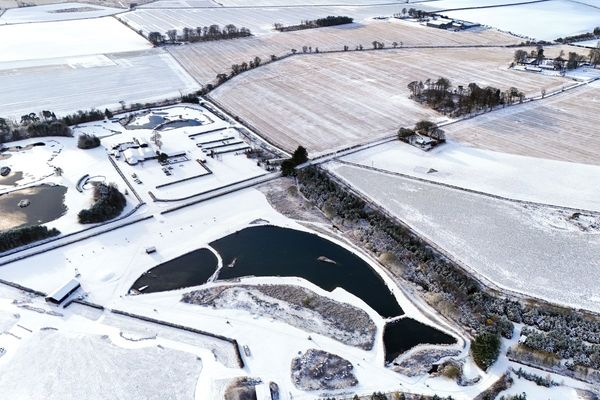
India will quickly cut tariffs on Australian lamb, wool and rock lobsters as part of a new trade deal, while it may take up to a decade to scale back imposts on a range of other products.
The Morrison government is due to sign an interim trade deal with India on Saturday, in the latest sign the Coalition is clearing the decks for the start of the formal election campaign when caretaker conventions will apply.
India is Australia’s seventh-largest trade partner, but attempts to diversify trade have taken on extra urgency given the increasingly rocky relationship with top-trading partner China.
The interim trade deal is three months later than the original deadline, suggesting there were several sticking points in the negotiations, and the full text has yet to be released.
The Australian government said tariffs would quickly be eliminated on more than 85% of Australian exports to India, valued at more than $12.6bn a year.
That would rise to almost 91%, or exports valued at $13.4bn, over 10 years, according to the government. Meanwhile, about 96% of goods imports from India are expected to enter Australia duty-free when the agreement takes effect.
The prime minister, Scott Morrison, said the interim agreement, to be signed in a virtual event on Saturday, “opens a big door into the world’s fastest growing major economy for Australian farmers, manufacturers, producers and so many more”.
Australia has offered to provide new access for young people from India to participate in working holidays in Australia, with places set at 1,000 a year.
The Australian government argued the move would “contribute to both workforce requirements and to boost tourism to support our post-Covid recovery”.
Indian students with a bachelor’s degree with first-class honours will also be allowed to stay in Australia for three years after their graduation, rather than the current two years. This applies only to the science, technology, engineering and mathematics (STEM) and information and communications technology (ICT) sectors.
Australian agricultural exporters will be anxious to see improved market access to India, in light of the trade actions taken by China over the past two years.
There will be an immediate elimination of tariffs on Australian fresh rock lobster, which has experienced disruption in the trade tensions with Beijing.
Australian wine exporters, however, will have to wait for the full benefits, with tariffs on wine bottles with a minimum import price of US$15 expected to reduce from 150% to 75% when the agreement enters into force. This tariff will then reduce to 25% over 10 years.
The Australian government said sheep meat tariffs of 30% would be eliminated when the deal enters into force, “providing a boost for Australian exports that already command nearly 20% of India’s market”.
“Wool will have the current 2.5% tariffs eliminated on entry into force, supporting Australia’s second-largest market for wool products,” the government said.
India’s tariffs of up to 30% on a range of products including avocados, onions, kidney beans, cherries, macadamias and blueberries are expected to be eliminated over seven years.
The deal, to be known as the Australia-India Economic Cooperation and Trade Agreement, is also expected to reduce tariffs on Australian almonds, lentils, oranges, mandarins, pears, apricots and strawberries.
Over five years, India is to eliminate tariffs on Australian infant formula, but the interim agreement does not appear to provide any other market access gains for the sensitive dairy sector.
Morrison’s office said the Australian resources sector would benefit from the immediate elimination of tariffs on coal, alumina, metallic ores and critical minerals such as titanium.
In a clear pre-election pitch, Morrison said: “This is great news for lobster fishers in Tasmania, wine producers in South Australia, macadamia farmers in Queensland, critical minerals miners in Western Australia, lamb farmers from New South Wales, wool producers from Victoria and metallic ore producers from the Northern Territory.”
Labor had previously accused the Coalition of not putting enough effort into deepening the economic relationship with India, despite “talking a big game with the India FTA for many years”.
The opposition trade spokesperson, Madeleine King, predicted earlier this week “there may be some delivery in the minutes before midnight of an election”.
The Australian trade minister, Dan Tehan, said the deal would “create new opportunities for jobs and businesses in both countries, while laying the foundations for a full free trade agreement” at a future date.
Tehan and his counterpart, Piyush Goyal, will sign the interim deal in a virtual event to also be attended by prime ministers Morrison and Narendra Modi.
Both governments are also expected to improve the recognition of professional qualifications, licensing and registration procedures in each country.
Australian services suppliers in 31 sectors and sub-sectors – including higher education, banking and tourism – are also “guaranteed to receive the best treatment accorded by India to any future free trade agreement partner”, according to Morrison’s office.







